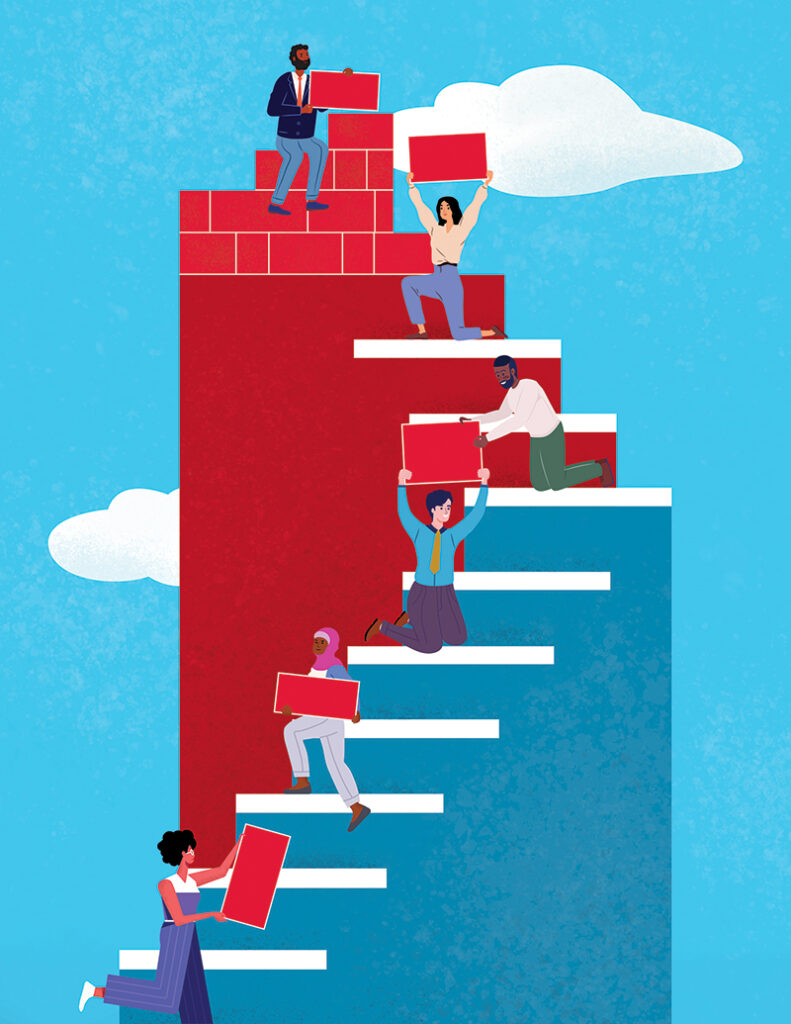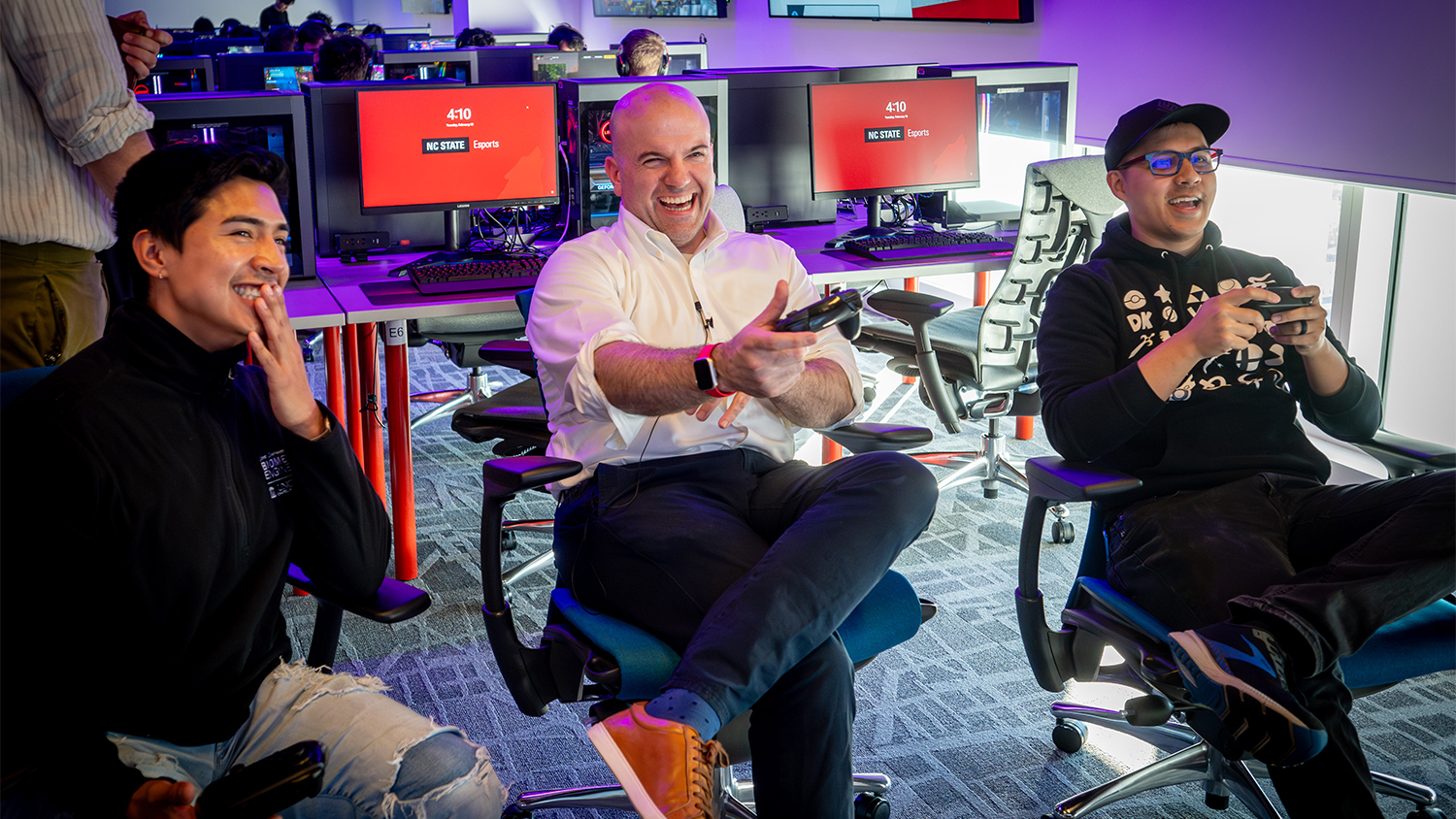When Lisa Bullard was hired to join the NC State University College of Engineering (COE) faculty in 2000, she was assigned the course she’d be teaching a week-and-a-half before the semester started.
“I was hired from industry,” she said. “I had never taught a course before. … And it was really hard.”
Fortunately, Bullard, who is now an Alumni Distinguished Undergraduate Professor and director of undergraduate studies for the Department of Chemical and Biomolecular Engineering (CBE), had mentors within the department.
Christine Grant, a fellow CBE professor, recognized the need for mentorship among the COE faculty. In 2008, she created an office formerly known as Engineering Faculty Advancement to support faculty members in their many responsibilities, including teaching, but also in the tenure and promotion process, grant applications and research. Eight years after her own struggles to adjust to academia, Bullard was on the office’s first faculty roundtable.

Now, the office is evolving under a new name: the Office for Faculty Development and Success (OFDS). It has grown from two full-time employees to three full-time employees and a postdoctoral research scholar who are working together to offer new programs with an emphasis on community.
Led by Joel Ducoste, associate dean for faculty development and success and professor in the Department of Civil, Construction, and Environmental Engineering (CCEE), OFDS has established a mission to “create opportunities for a community ecosystem where faculty achieve professional fulfillment and advance each other’s success,” — a mission that remains close to Grant’s original goals.
But it is doing this at an expanding College of Engineering that is navigating a work environment altered by the Covid-19 pandemic.
“Faculty are scattered spatially across our campus to support the different realms of responsibilities and activities that they are engaged in, but because of that spatial distance… the connectedness, the opportunity to chat and build bridges are not as easy as they were in the past,” he said. “We’re trying to create opportunities and to build those bridges across these different realms — a bridge to a lot of different things to allow that connection to happen.”
A COE community
The College of Engineering is growing quickly, with more than 40 new faculty members starting last year. To help make sure the changes OFDS is making are in line with faculty needs, the team assembled a faculty advisory committee representing all career levels and departments. Bullard is one of the members.
“They were proactive and reaching out to faculty stakeholders, to make sure that the programming that they plan to offer is meeting the current needs of faculty and meeting the needs of a diverse range of faculty, both with regard to different roles and also different experience levels,” she said.
Teaching resources are still a common need, both for new and later-career faculty members who want guidance on the latest teaching technology and strategies. Faculty members are experts in their fields, but many receive little training on how to run a classroom.
Megan Morin, associate director of OFDS, has a Ph.D. in learning and teaching in STEM with a focus on engineering and technology. She is a former middle school science teacher. Morin has helped lead efforts to identify faculty development needs through a COE-wide assessment. She also brings with her prior experience with the Kern Entrepreneurial Engineering Network (KEEN), a national STEM-based network that provides resources on the latest teaching trends, to support the new Wolfpack Engineering Unleashed (WEU) program, which emphasizes fostering engineering education and inspiring students.
“The WEU initiative and the KEEN resources are one way for us to facilitate a conversation with faculty about how we can support the faculty in engaging students on their research teams and in their courses,” she said.
“Giving them the tools so that they can pick and choose which type of engagement is best suited for the type of learning exercises that they are doing in their classroom I think will be a huge benefit,” Ducoste added.
Morin and Ducoste want faculty members to feel empowered to bring new strategies and ideas into their courses and make learning fun for both the faculty member and the students.
They are also aware of the importance of faculty members learning from and mentoring each other across campus and within their departments. OFDS will be meeting with each COE department, starting with CCEE, to discuss specific departmental needs.
While many efforts are tailored to needs specific to academia, like workshops and guidance on teaching, tenure and applying for grants, OFDS is also emphasizing fun and establishing new faculty communities.
“In any faculty meetings we’ve had in the last few months, the number one thing faculty want is community,” Morin said.
In response, OFDS is planning more events and ramping up its communications efforts. It created a faculty LinkedIn group, debuted a new website and started a monthly email newsletter.
In the first issue sent out in January, Jim Pfaendtner, Louis Martin-Vega Dean of Engineering, shared how his passion for exercise shifted from running marathons to doing CrossFit. OFDS wants faculty members to be able to bring their entire selves to work and not just think about research and teaching.
Underneath all of OFDS’ efforts is a mindfulness of the length of faculty members’ to-do lists.
“We know what’s practical for faculty,” Morin said. “It takes a long time to learn certain skills for student engagement, so we’re just trying to drop tidbits along the way for them to gain some of these skills … wherever they are in their career.”
- Categories:



